The Battle of Chile: Part I is a film of genre Documentary directed by Patricio Guzmán released in USA on 12 january 1978
The Battle of Chile: Part I (1975)
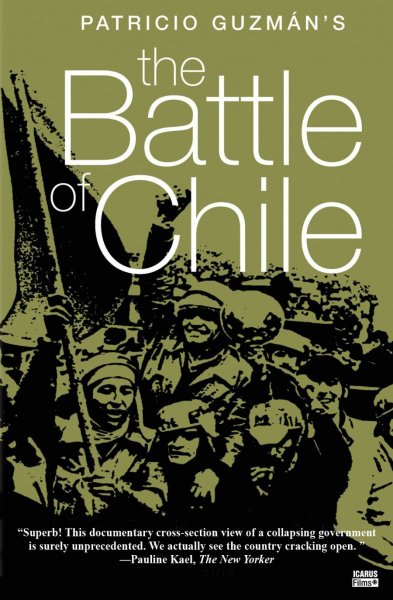
If you like this film, let us know!
Released in USA 12 january 1978
Directed by Patricio Guzmán
Themes Seafaring films, Politique, Transport films, Documentary films about law, Documentary films about historical events, Documentaire sur une personnalité, Documentary films about politics, Political films, Films about Latin American military dictatorships
Rating80%










The Battle of Chile is a documentary film directed by the Chilean Patricio Guzman, in three parts: The Insurrection of the Bourgeoisie (1975), The Coup d'état (1976), Popular Power (1979). It is a chronicle of the political tension in Chile in 1973 and of the violent counter revolution against the democratically elected government of Salvador Allende. It won the Grand Prix in 1975 and 1976 at the Grenoble International Film Festival. In 1996, Chile, Obstinate Memory was released and followed Guzmán back to Chile as he screened the 3-part documentary to Chileans who had never seen it before.
Synopsis
En 1973, alors que Salvador Allende initie un programme de transformations sociales et politiques visant à enrayer la pauvreté, la droite organise une série de grèves. Quand Allende obtient la majorité des suffrages en mars, la bourgeoisie comprend qu’elle ne peut plus avoir recours à des mécanismes légaux, et c’est le coup d’État.Comments
Leave comment :
Suggestions of similar film to The Battle of Chile: Part I
There are 6 films with the same director, 13544 with the same cinematographic genres (including 576 with exactly the same 2 genres than The Battle of Chile: Part I), 15916 films with the same themes (including 0 films with the same 9 themes than The Battle of Chile: Part I), to have finally 70 suggestions of similar films.If you liked The Battle of Chile: Part I, you will probably like those similar films :

Nostalgia for the Light (2010)
, 1h30Directed by Patricio Guzmán
Origin Chili
Genres Drama, Documentary
Themes Seafaring films, Politique, Transport films, Documentary films about law, Documentary films about politics, Political films, Films about Latin American military dictatorships
Actors Patricio Guzmán, Víctor González
Rating75%





Nostalgia for the Light opens with a view of a telescope and images of our moon. The narrator, Patricio Guzmán, describes how he came to love astronomy and begins to remember his childhood where “only the present moment existed.” Soon, Chile became the center of the world as astronomers and scientists flocked to Chile to observe the universe through the thin and clear skies. We next see Guzmán walking in the Atacama Desert, a place with absolutely no moisture, so much so that it resembles the surface of Mars. This desert, and its abundance of history, becomes the focus of the documentary. Because of how dry it is, the desert hosts the untouched remains of fish, mollusks, Indian carvings, and even mummified humans.
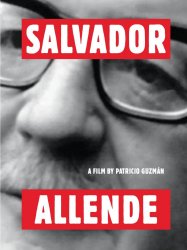
Salvador Allende (2004)
, 1h40Directed by Patricio Guzmán
Origin Chili
Genres Biography, Documentary
Themes Politique, Documentary films about historical events, Documentaire sur une personnalité, Documentary films about politics, Political films, Films about Latin American military dictatorships
Actors Patricio Guzmán
Rating75%





This film shows how Allende managed to be elected in Chile and brings hope to a part of the population by enforcing socialist measures. It also explores Richard Nixon's policies and his orders to the CIA (Project Fubelt) concerning Allende during his election campaign.
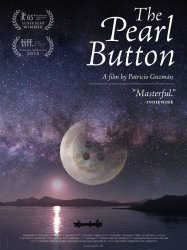
The Pearl Button (2015)
, 1h22Directed by Patricio Guzmán
Origin Chili
Genres Documentary
Themes Documentary films about law, Documentary films about historical events
Actors Patricio Guzmán
Rating75%





The filmmaker has described the film as part of a diptych with Nostalgia for the Light, exploring familiar Guzmán themes such as memory and the historical past, particularly of that of the history's "losers" rather than victors, as it documents the settlement of Chile’s Tierra del Fuego, including some of the last surviving descendants of the original Alacalufe and Yaghan inhabitants.

Jango (1984)
, 1h57Origin Bresil
Genres Documentary, Historical
Themes Seafaring films, Transport films, Documentary films about law, Documentary films about historical events, Documentaire sur une personnalité, Documentary films about politics, Political films, Films about Latin American military dictatorships
Actors José Wilker
Rating76%





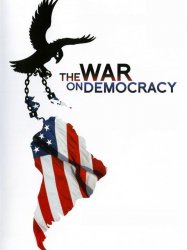
The War on Democracy (2007)
, 1h36Directed by John Pilger
Genres War, Documentary, Historical
Themes Seafaring films, Transport films, Documentary films about law, Documentary films about historical events, Documentary films about politics, Political films, Films about Latin American military dictatorships
Actors John Pilger, Ronald Reagan
Rating80%





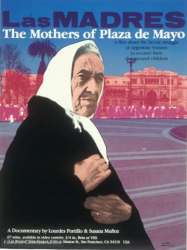
The Mothers of Plaza de Mayo (1985)
, 1h4Genres Documentary, Historical
Themes Seafaring films, Transport films, Documentary films about law, Documentary films about historical events, Documentary films about politics, Political films, Films about Latin American military dictatorships
Actors Carmen Zapata
Rating67%






Twenty Years Later (1985)
, 1h59Directed by Eduardo Coutinho
Origin Bresil
Genres Documentary, Historical
Themes Seafaring films, Transport films, Documentary films about law, Documentary films about politics, Political films, Films about Latin American military dictatorships
Actors Eduardo Coutinho
Rating82%






Improper Conduct (1984)
, 1h52Directed by Néstor Almendros
Origin France
Genres Documentary, Historical
Themes Seafaring films, Films about sexuality, Transport films, LGBT-related films, Documentary films about law, Documentaire sur l'homosexualité, Documentaire sur une personnalité, Documentary films about politics, Political films, LGBT-related films, LGBT-related film
Actors Susan Sontag
Rating76%





 , 1h41
, 1h41Directed by Rithy Panh
Origin France
Genres War, Documentary, Historical
Themes Politique, Films about racism, Documentary films about racism, Documentary films about law, Documentary films about war, Documentary films about historical events, Documentaire sur une personnalité, Political films
Rating71%





Vann Nath and Chum Mey, two survivors of the Khmer Rouge's Tuol Sleng Prison, are reunited and revisit the former prison, now a museum in Phnom Penh. They meet their former captors – guards, interrogators, a doctor and a photographer – many of whom were barely teenagers during the Khmer Rouge era from 1975 to 1979. Their appearances are in stark contrast to the two former prisoners, who are both elderly men. Vann Nath, who was made to paint portraits of prisoners, has a full head of white hair.
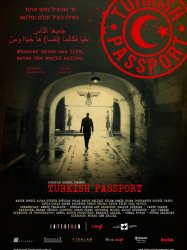
Turkish Passport (2011)
, 1h31Genres Drama, Documentary, Historical
Themes Films about racism, Films about religion, Documentary films about racism, Documentary films about law, Documentary films about war, Documentary films about historical events, Documentaire sur une personnalité, Documentary films about politics, Documentary films about religion, Political films, Films about Jews and Judaism, Documentary films about World War II
Rating79%





Turkish Passport tells the story of diplomats posted to Turkish embassies and consulates in several European countries, who saved numerous Jews during the Second World War. Whether they pulled them out of Nazi concentration camps or took them off the trains that were taking them to the camps, the diplomats, in the end, ensured that the Jews who were Turkish citizens could return to Turkey and thus be saved. Based on the testimonies of witnesses who traveled to Istanbul to find safety, Turkish Passport also uses written historical documents and archive footage to tell this story of rescue and bring to light the events of the time. The diplomats saved not only the lives of Turkish Jews, but also rescued foreign Jews condemned to a certain death by giving them Turkish passports. In this dark period of history, their actions lit the candle of hope and allowed these people to travel to Turkey, where they found light. Through interviews conducted with surviving Jews who had boarded the trains traveling from France to Turkey, and talks with the diplomats and their families who saved their lives, the film demonstrates that "as long as good people are ready to act, evil cannot overcome".
 Connection
Connection